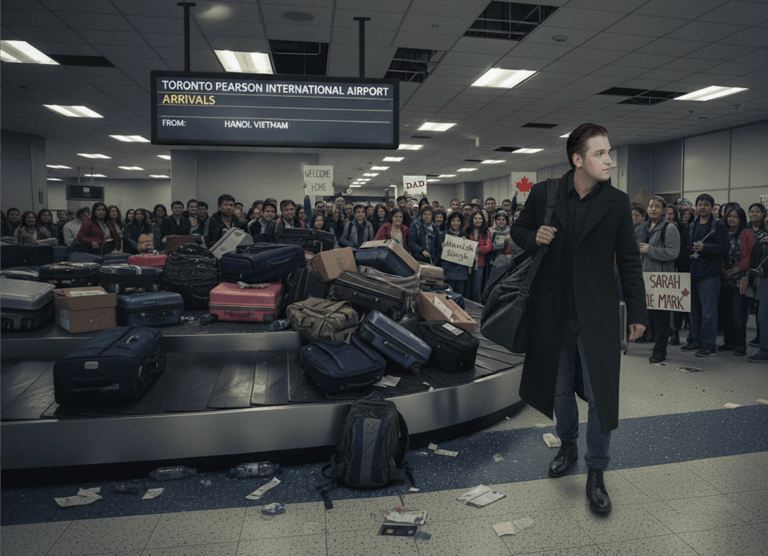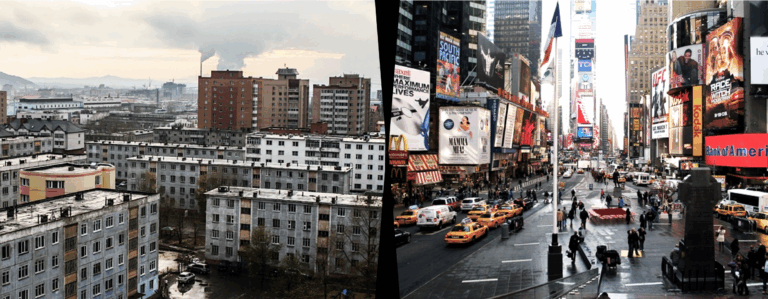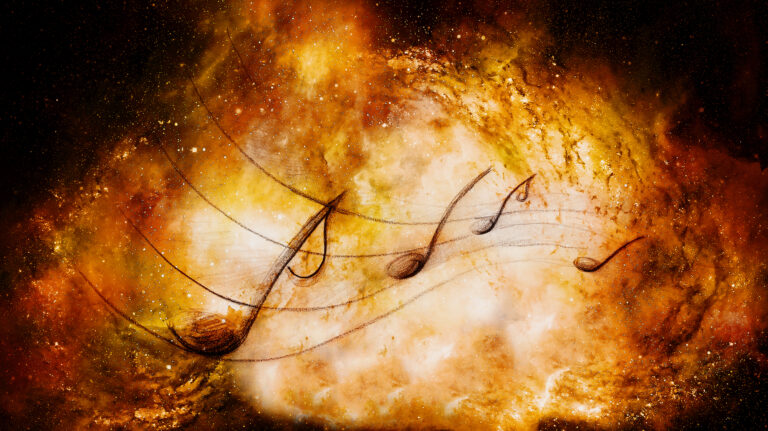Poetry is not a mere hobby or an esoteric pursuit with a boutique flavour meant to appeal to the tiny sodality of the cognoscenti. It is not a word game to be enjoyed by the higher Scrabblers or a display of bibelots relished by a clan of rarefied connoisseurs. On the contrary, poetry is meant to be used, like any created or invented object that changes how we live, feel and think. The word “poem” derives directly from Greek poiima, “a thing made,” something palpable. Interestingly, the word is translated in Ephesians 2:10 as “workmanship” and Romans 1:20 as “creation.” Plainly, the word connotes both the creative and the pragmatic, a material inspiration that has a purpose.
Most of the poetry written today, however, is neither visionary nor useful. It does little to enhance our lives, prompt us to love the language, entice us to commit phrases to memory, or shed light upon obscurity. It is like a scribbled irrelevance on the world’s real business, resembling graffiti on freight trains. It tends to read mainly like a private reverie on the nature of insignificance or like a versified blook.
The language of poetry should reverberate in the imagination. It is a unique form of expression, cadenced, precise, compelling, registering as beautiful even if the subject is not. This is not to say that poetry should be florid, magniloquent or ornate; as Ezra Pound deposes in his “A Few Don’ts,” “Use either no ornament or good ornament,” that is, language which does not detract from the poem’s momentum or treat the page as a catwalk for strutting its verbiage. In addition, good poems or parts thereof should be memorable, by which I don’t mean memorisable in toto, but that lines and passages are memory-friendly. They sum up aspects of one’s experience, are recitable, and useful, too, in the sense that they are portable. We carry them subliminally and find they can give point and concision to our responses to the world.
This, I have learned, is now a minority opinion, something like a dissenting legal brief. I recall the astonishment I felt when I was poet-in-residence at a Canadian university and taught a mixed undergraduate/graduate Creative Writing class as part of my departmental duties. Almost none of my students had read much poetry, apart from the fashionable drivel of Frank O’Hara, Charles Olson, John Ashbery and Al Purdy, poetry that oscillates between the irredeemably prosaic and the proudly indecipherable. Some had a passing acquaintance with Robert Lowell’s Life Studies, a volume which accelerated the drift toward confessional banality. Of the classics, they were sublimely ignorant. When I reeled off the names of poets I expected them to be familiar with, at least in passing, and asked them to recite just a few lines from one or another – Donne, Marvell, Pope, Wordsworth, Keats, Whitman, Browning, Hopkins, Yeats, Frost, Larkin, Wilbur, Layton – I was met with blank stares.
Their referential range extended almost exclusively to their poetry-writing friends, their contemporaries and near-contemporaries, a fallow field in which to harvest a crop of edible verse. When I recommended that the best way to learn their trade, to become poets, would be to go back to the Anglo-Saxons and work their way up to the present, experimenting with every form and genre native to the English-language literary tradition – no matter how “archaic” they might regard these – until one acquired a degree of disciplinary competence, my students would grow distinctly nervous, even rebellious. After all, wouldn’t their undeniable personal gifts, burnished by a little practice and a couple of Creative Writing seminars, more than suffice?
Politely suppressing my skepticism, I would then steer them to W.H. Auden’s Foreword to Joseph Brodsky’s Selected Poems: “One demands two things of a poem. Firstly, it must be a well-made verbal object that does honor to the language in which it is written. Secondly, it must say something significant about a reality common to us all, but perceived from a unique perspective.” Sadly, I was tilting at windmills.
Picking up one or two foreign languages, I suggested, would also be helpful to them as poets, in at least two ways: seeing how language influences thinking, and renewing the sense of surprise in how one’s own language works, its singular capacities for expression, its idiomatic playfulness and its substratum of lexical roots to be exploited for meaning. To take one example from a myriad: When Milton in Book II of Paradise Lost has his Beelzebub refer to earth’s new inhabitants as “puny,” he was not only thinking of mankind as paltry but of the French puis né, “later born,” created after the angels and the world. Clearly, knowledge of the language, its borrowings and tributaries, expands creative opportunities. This is what Montreal poet and critic Carmine Starnino in an important article on translation sees as an “invigorating surplus,” as “shadowy accents from a large palette of foreign vernaculars.”
Similarly, familiarity with the history of poetry – its origins, its varieties, its metrics and techniques, its multiple prosodies, its formative theories, and the work of its best practicioners – is indispensable, for anyone with serious poetic compulsions. The anxiety of influence, in Harold Bloom’s coinage, is a beneficial aspect of composition, forcing the poet to deal with his or her “strong” and intimidating precursors in the struggle to achieve an independent voice and presence. Ancestry is an essential part of identity.
As with any other complex discipline – consider painting and music – learning what came before and interiorizing the rules, intricacies and possibilities of the craft constitutes a pretty tall order, one which few of us can wholly fulfill. Excellent poets do not always produce first-rate work. Good poets can write bad poems. But the desire to achieve true mastery (to hitch one’s wagon to a star, as Emerson urged in his timeless essay American Civilization) is an ambition to be respected. Unfortunately, the material I regularly receive from publishing houses and poetry journals, consisting of work from first-timers as well as celebrities in the field, has served only to confirm my jaundiced view that the state of the art is not state of the art. Carcanet Press, for example, which bills itself as the largest poetry publisher in the world, inflicts a new volume of forgettable verse upon us practically every week. Poetry itself is hard put to survive the onslaught.
One wonders why these bearers of an ectopic muse bother to write, except from a conviction of their own pre-eminence as sensitive souls endowed by nature with special talents. My folders bulge with these supposedly luminous productions, very few of which, to cite Auden from the Introduction to The Poet’s Tongue, exemplify “memorable speech [that] must move our emotions or excite our intellect,” or even the attempt thereat. Admittedly, Auden also wrote in his elegy for W.B. Yeats that “poetry makes nothing happen” – which it plainly does or can, or he would not have penned these lines.
To cite some of my own vade mecums, instances of what poetry can do when it is not diced prose, selfie-type indulgence or featureless prattle, and how it can exert a kind of foveal influence on experience, sharpening one’s perception of meditative detail and lending lustre and modulus to one’s conversation:
“Then it is wisdom, as it seems to me,/ To make a virtue of necessity” (Geoffrey Chaucer, “The Knight’s Tale” – an adage Shakespeare pilfered in Two Gentlemen of Verona ); “I could not love thee, Dear, so much/Lov’d I not honour more” (Richard Lovelace, “To Lucasta, Going to the Wars”); “But at my back I always hear/Time’s wingèd chariot hurrying near” (Andrew Marvell, “To His Coy Mistress”); “A man’s reach should exceed his grasp/Or what’s a heaven for?” (Robert Browning, “Andrea Del Sarto”); “Ah, love, let us be true/To one another!” (Matthew Arnold, “Dover Beach”); “I could turn and live with the animals, they are so placid and self-contained” (Walt Whitman, Leaves of Grass); “I have been faithful to thee, Cynara! in my fashion“ (Ernest Dowson, “Non Sum Qualis Eram Bonae Sub Regno Cynarae” – a faint echo of which sounds in Leonard Cohen’s song “Bird on the Wire” where he sings “I have tried in my way to be free”; incidentally, the famous movie title, “Gone with the Wind” comes from Dowson’s poem); “I have measured out my life with coffee spoons” (T.S. Eliot, “The Love Song of J. Alfred Prufrock”); “Ho hum. I am for wit and wakefulness” (Richard Wilbur, “Ceremony”); “A quiet madman, never far from tears” (Irving Layton, “The Birth of Tragedy”); “The soul waits unexplored” (Willis Barnstone, “Night without Love,” From This White Island); “it pinches place/From peripheries where places cannot be” (Eric Ormsby, “Mullein”); “memory/spins like rear wheels in mud” (A.B. Jackson, “Time,” The Wilderness Party); “to see himself as the appointed amanuensis/Called upon to take a lavish dictation” (David Barber, “From a Burbank Catalogue,” Wonder Cabinet).
Lines and pericopes from other languages will also become part of one’s inner anthology. Québécois poet Saint-Denys Garneau’s Je veux ma maison bien ouverte (“I want my house well open”), for example, or Greek laureate George Seferis’ Opou kai na taxidepso, i Ellada me plegonei (“Wherever I may travel, Greece wounds me”) are cameo epiphanies expressing sentiments that are variously apt.
These are fragments that have personal meaning – “fragments,” as Eliot writes in The Waste Land, “I have shored against my ruin” – and that arise from time to time on appropriate occasions. There are innumerable others. Robert Frost and Emily Dickenson are quotable mines of memorable utterance. As for Shakespeare, who is the quintessence of the English language, he could fill an Encyclopedia Poetica.
Of course, it is not only a question of aphoristic memory that is in play. Sometimes a long poem will exert a powerful, almost orchestral effect on one’s mind and spirit: Homer’s Odyssey, Dante’s Inferno, Pope’s The Rape of the Lock, Eliot’s The Waste Land, Pound’s Pisan Cantos, Berryman’s The Dream Songs, Merrill’s The Changing Light at Sandover, or even a more facetious production like Carroll’s The Hunting of the Snark. Sometimes a talented jeu d’esprit will have a similar if less profound effect, like Philip Terry’s revisionary performances, Dante’s Inferno and Shakespeare’s Sonnets. Readers will possess their own almanacs of imperishable resonance.
The point I am making is that real poems have an aura of inevitability about them, as if they had always been there. Great or good poetry offers solid content, is impeccably made and lovingly phrased, will or can become an integral aspect of one’s being, and remains always useful in how one captures and formulates the often elusive nature of one’s own experience. And as Wallace Stevens puts it in his poem with the self-fulfilling title “It must give pleasure”:
As when the sun comes rising, when the sea
Clears deeply, when the moon hangs on the wall
Of heaven-haven. These are not things transformed.
Yet we are shaken by them as if they were.
Such works are not intended merely for lamplit contemplation; they have topical applications, however commonplace. “There’s little grandeur in this, maybe,” writes David Orr in his guide to modern poetry Beautiful & Pointless, “but out of such small, unnecessary devotions is the abundance of our lives made evident.” True, except maybe for the “unnecessary.”
Poetry is classically regarded as the custodian of the language, the curator of its power and purity. A sense of responsibility to the language comes with the territory. When poetry fails in its stewardship, when the language it is tasked to preside over and preserve is allowed to deteriorate and become flaccid, trite and bogus – in short, when it becomes useless – genuine thought and honest feeling are imperilled.
Although the prospect for poetry is discouraging, all is not entirely lost. Thank the Lord for the exceptions. There is still a minim of excellent poets, some well-known, others laboring in the shadows, who can, to quote Milton, “fit audience find, though few.” For such lovers of the craft, despite the evil days upon which it has fallen, poetry at its best remains part of one’s mental equipment, a verbal and perspectival implement that assists in one’s transactions with the world. As such, it remains useful, enriching reflection and keeping the language vital and renewed as we await the return of poetry from cultural exile.






